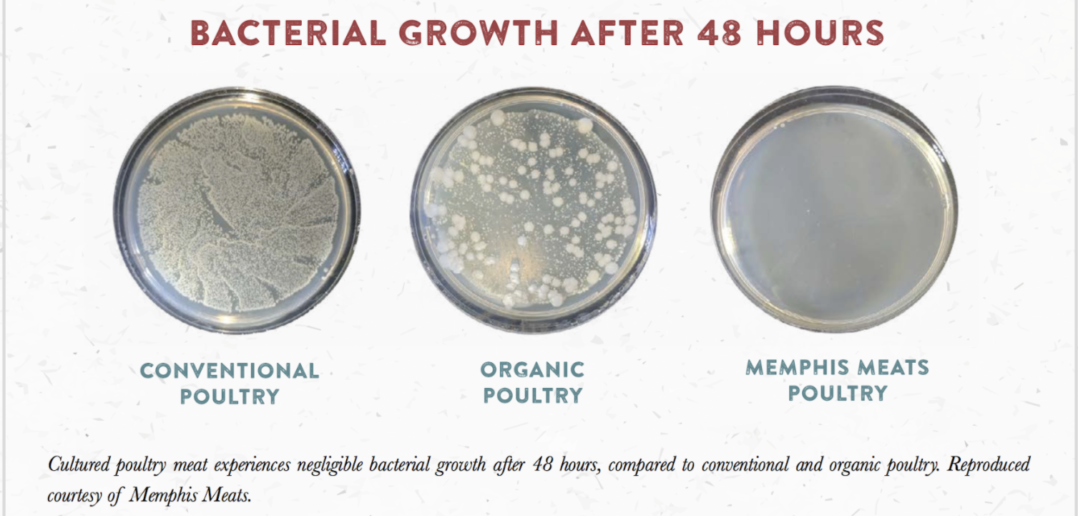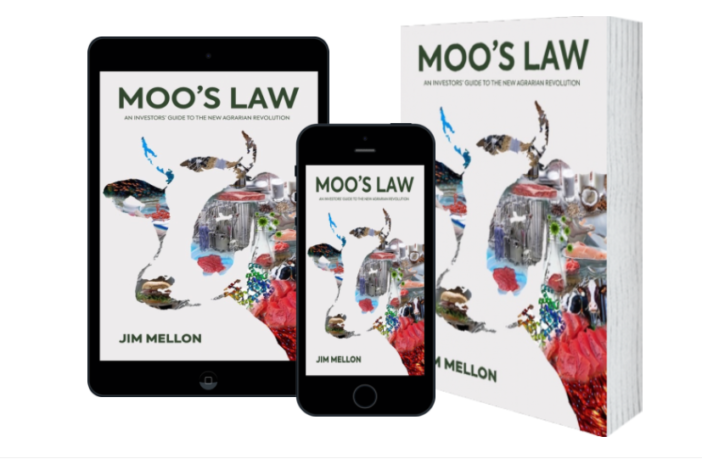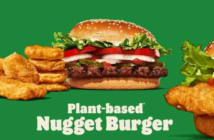Over the next twelve months you can expect to hear a lot of talk about lab processed, or cultured meat with 2021 set to be a watershed year for the technology for a number of reasons.
The first cultured meat product, in this instance fake chicken, went on sale in a restaurant in Singapore at the end of 2020. It isn’t likely to remain unique for long. BlueNalu has promised to launch its lab-processed mahi-mahi and bluefin tuna in San Diego restaurants by the end of the year. Meanwhile, the race is on for the first cultured burger to make a full public appearance.
The big issue is how will the regulators respond. Is the US likely to lead the way? Or will the UK diverge from mirroring EU regulations and aim to become the first large western nation to become a significant market for the cultured meat products? And how will the global farming industry respond to the most disruptive threat to its core business it has ever had to face?
One man who is very bullish about the prospects for the lab-grown meat is Isle of Man-based financial investor Jim Mellon. He has just published a superb book Moo’s Law, which is the first to seriously address the issue of the new agrarian revolution. In it he details the inefficiency of our current meat production systems and explains how lab-processed meat has the potential to play a lead role addressing climate change and hunger – two of the planet’s biggest problems.
At the same time Mellon points out the huge opportunity for investors and at the end of the book profiles some of the companies that he believes will shape the future of food.
It is a fascinating book, and you can buy it here.
We spoke to Jim in late January 2021 and he outlined why he is so passionate about cultured meat and what he would say to a room full of beef farmers.
On 4th March 2021, Jim will be speaking to leading figures in the cellular agriculture industry in an online webinar. Sign up here.

What inspired you to write a book about the New Agrarian Revolution? Was there a Eureka moment when you sensed the potential of alt and lab-processed meats?
Fundamentally, the world is facing huge problems. We’re wrecking the planet through overpopulation and overconsumption. We’re producing more and more stuff every year, and the by-product is pollution. Pollution of our land, our water and our air threatens to make this planet uninhabitable. This isn’t just the result of gas-guzzling SUVs: our food system is a huge part of the problem too. Agriculture and forestry are responsible for around a quarter of global greenhouse emissions.
I’m fortunate enough to be in a position where I can spend much of my time thinking about the Big Picture. I realised that the environmental crisis is the most urgent problem facing us today. I also realised that I’m uniquely qualified as a prominent investor to assess new sectors like the cellular agriculture industry. This book is my small contribution to solving a part of this huge problem.
Can you detail what ‘Moo’s Law’ actually is? And when do you predict that we will reach that point?
I was riffing off a concept in computing called Moore’s Law that states that microchip efficiency doubles every two years. Moo’s Law is the idea that the cost of production for cultured meat will fall at a similarly exponential rate.
In 2013, a Dutch professor called Mark Post unveiled the world’s first fully-cultured hamburger to the world’s press in London. That burger cost US $250,000 (paid for by Google’s Sergey Brin.)
Now, Mark Post is Chief Scientific Officer at Mosa Meat, which can produce a cultured beef patty for €10. It’s not quite competitive on price with traditional meat but it’s an incredible achievement in only eight years, and further cost reductions will be seen in the next few years.
Eat JUST’s cultivated chicken is available at the members’ club 1880 in Singapore, following regulatory approval from the Singapore Food Agency – a world first. They are charging US $23 per plate of cultivated chicken nuggets, which obviously is a substantial premium to conventional chicken nugget prices.
I expect many more cultivated meat players will launch products in high-end restaurants in the next two years, and mass market adoption, at prices equivalent to conventional meats, will be seen in the next ten years.
One thing that I don’t think is fully answered in the book is how lab-processed meat will overcome some of the obstacles it will inevitably face. On one hand, there is a very powerful meat farming lobby across the world. At the same time, many vegan food innovators will not eat it as they are suspicious of the way it is developed. So what makes you so confident it will be taken up so rapidly?
Yes, the meat lobby is a problem, especially in the USA. They try to enact what we call “ag-gag” laws to gag the budding revolution in cellular agriculture. One thing that I find particularly ridiculous is the attempt to ban alternative protein products from using words like “meat” or “sausage” on their packaging.
In the long run, though, I think the meat lobby is in the same position as the horse-and-trap lobby when the automobile was invented – it will just become untenable to continue to insist that traditional meat is equal to cultured meat in terms of land use, pollution, animal cruelty or human health. In Arkansas, for example, Tofurky and the Good Food Institute recently managed to overturn one of these ag-gag laws.
I agree that public acceptance is the most important challenge. Of course, about 90% of Americans are not
vegetarian or vegan, so vegan opinion of cultured meat products will only play a marginal role in determining whether they are successful or not. Along with taste and convenience, the main issue for meat-eaters is price, and, as I’ve said, we should be very optimistic about getting to price-competitiveness soon.
Cultured meat should be ideal for vegans too, though. They can eat all the burgers they like, without being implicated in the ethical horror-show of the traditional meat industry. One barrier at the moment is Foetal Bovine Serum (FBS), which is used as a nutrient broth in the bioreactors where the cells are cultured.
FBS has been described as a “miracle juice” as it contains all the nutrients the cells need to grow. However, it’s derived from cows that are pregnant when they are slaughtered. It’s really unfortunate that such a useful substance comes from such an unsavoury source, but many companies are working to find alternatives and produce a truly animal-free cultured meat product.
What do you think will be the trajectory for current plant-based meat market leaders like Beyond and Impossible? Do you think they will invest/buy lab-processed meat pioneers?
Possibly, but I think they’ll probably stick to what they’re doing with plant-based meat. Pat Brown, the CEO of Impossible, said last year that he doesn’t believe cultured meat will ever take off, so it’s very unlikely they’ll try to move into this space. However, when I interviewed Ethan Brown (CEO of Beyond) for the book, he was open-minded about incorporating cell-based ingredients into their products in the future to enhance flavour and texture.
Ultimately, I’m not optimistic about the longevity of the plant-based meat market. They only exist because there’s a segment of the population who enjoy the taste of meat, but hate the ethical problems of the animal-based meat industry. All this will be irrelevant once cultured meat comes to market: it will taste identical to “real” meat with none of the drawbacks.

Which companies in the space do you currently invest in and which ones should we most be watching?
I am the largest shareholder and co-founder of Agronomics, a leading listed investment company on alternative proteins, with a focus on cellular agriculture and cultivated meat. Portfolio holdings of Agronomics include BlueNalu, Meatable and SuperMeat amongst others.
BlueNalu is a really exciting one. They make cell-based seafood out of San Diego. The main advantage of seafood is that it has an easier regulatory pathway: cultured meat has to be approved by the FDA and USDA jointly, but cell-based seafood only has to go through the FDA.
Solar Foods is very interesting as well. They’re a Finnish company producing proteins with hydrogenotrophs, which are organisms that can metabolise air. They’re literally creating food from thin air! The tech was originally researched by NASA in the 1960s as a way to feed astronauts on long voyages through space, and Solar Foods have revived it to create a protein “mush” which could be used to fortify plant-based meats or to feed cell cultures in the bioreactor.
And it’s not just food. VitroLabs is using similar tech to produce cell-based leather. Not slaughtering cows is the most obvious benefit, but not the only one. There are no limitations on the size of a leather batch, unlike the size of a cowhide. There are no imperfections on the product, unlike the scarring on cowskin from barbed wire. And the tanning process doesn’t need all the environmentally-wasteful chemicals to remove hair.
Why do you think the UK in particular has taken to plant-based food so enthusiastically? And how far behind do you think are the other main western democracies in plant food consumption?
I think the launch of Veganuary in 2014 may have played some role in the rise of veganism in the UK. This has helped create a link eating vegan and saving carbon dioxide, as well as raising awareness of animal welfare. In the UK, we are fortunate that there are many successful plant-based meat and dairy alternatives
available, including the Meatless Farm, which reported a year-on-year sales increase of 180% between 2019 and 2020. Many supermarket chains have also launched their own vegan product lines, increasing the availability of plant-based products at reasonable prices. Ultimately what drives demand for vegan products is price, taste and convenience. I believe many other western countries are also catching on to the plant-based trend: the number of vegans in Germany, for instance, is rising rapidly and now stands at 3% of the population. I do, however, question whether we have reached peak veganism, and whether there is a limit as to how convincing plant-based alternatives can get, especially compared to cell ag products, when they launch.
What are the implications of Brexit for the new agrarian revolution in the UK? Without EU regulations is there a possibility for the UK to become a home for lab-processed meat companies as well as a key early market for their food?
Brexit has created an opportunity for the UK to be able to set its own regulations through the Food Standards Agency (FSA), so it will be interesting to see whether the UK approves gene editing tools to be used for crop enhancement, which could see a boost in local food productivity.
As far as I’m aware, the UK government hasn’t made any statement on the topic yet. At the moment, we fully implement the regulations of the European Food Safety Authority (EFSA), and cultivated meat, which would be regarded as a novel food, would have to be approved via the Novel Food Regulation. It is worth noting
that cultivated meat does not require genetic modification to produce, therefore it is possible for EU countries to approve it for sale.
Singapore is one of the world’s leaders on this issue. I think most people saw that they were the first country to approve a cultured meat product recently. They recognised the problem of their food dependence, they’ve incentivised innovative food-tech companies to set up shop there, and now they’re reaping the rewards. Let’s hope the UK does the same!
If you were to face a room full of beef farmers today what advice would you give them?
That’s a tricky question – I don’t want to be horrible and say that their way of life is obsolete! I have a lot of respect for farmers and the tough work they do. At the same time, it’s like asking me to give advice to horse-and-trap drivers in 1890.
I’d have to be truthful and tell them why I think animal farming will be uncompetitive in a decade’s time. But I’d also spell out the opportunities. Perhaps some of them could enter the cultured meat industry themselves. Or they could repurpose their land for housing, rewilding or recreation. Land will always have economic value, but people will have to start realising that value in a more ethical way.
Is it paramount for New Agrarian companies to take money and investment from ‘clean sources?’ Do you think Oatly was damaged by having a key investor who had funded Trump in the US?
No, I don’t think so. Building an industry from scratch requires extraordinary amounts of capital, and the players who can provide that capital will always be compromised in one way or another from a puritan’s perspective.
I agree that Oatly took some PR damage from letting Blackstone invest when the connection between Trump and Blackstone’s CEO became public knowledge. However, if not for Blackstone, then Oatly would have needed an investment bank or a Middle Eastern sovereign wealth fund, which would undoubtedly have some unsavoury holdings somewhere in the world.
There’s not enough “clean money” in the world to fund the New Agrarian Revolution, and it’s ultimately not important to these companies’ missions to change the world. As the Romans said, pecunia non olet.
How has Covid impacted the contents of the book? How different would it have been if it was published in January 2020?

Illustration credit Moo’s Law by Jim Mellon and Memphis Meats
Covid-19 was actually the main reason I wrote this book! Not only was I locked down and in need of a project, but I also started looking into the origins of Covid and the history of animal-to-human transmissions. Unfortunately it also meant that I couldn’t travel to all the relevant companies and taste their products in person, so I had to use the wonders of Zoom to conduct all interviews for the book.
Almost every major epidemic in the last century has occurred due to agricultural malpractice. The Spanish Flu of 1918-1920 likely began on a farm in Arkansas. Avian flus continually afflict us because we keep chickens and pigs in proximity on farms; bird flus can only transfer to humans through an intermediary species such as pigs. The most common explanation for Covid is that it began in a wet market in Wuhan, China, with various exotic species like bats and pangolins exchanging viruses.
Cultured meat has almost none of these risks. We have a great graphic in the book showing the difference in bacterial growth between animal-based meat and cultured meat.
This past year has been terrible for everyone, particularly those who have lost loved ones. Fixing the global food system is the single most important thing we can do to prevent another pandemic.
The early part of the book contains one of the best and most cogent arguments for veganism that I have ever read. Yet you are a pescatarian. What will be the tipping point for you to go fully vegan?
Thank you! One of the things I discuss in the book is how difficult it is to expect everyone to implement principles like veganism, despite the ethical arguments in favour of it. Unfortunately I haven’t gone fully vegan so far, but the great thing is that science is taking us to a point where people can live ethical, animal-free lives without making the big sacrifices that veganism currently requires. Personally, I will be one of the earliest adopters of cell ag food (including fish), which will make me a vegetarian by current standards – not before time!
Jim Mellon is an investor and entrepreneur. His latest book is Moo’s Law: An Investor’s Guide to the New Agrarian Revolution, which is available from Harriman House and Amazon. For further information, visit http://mooslawbook.com




